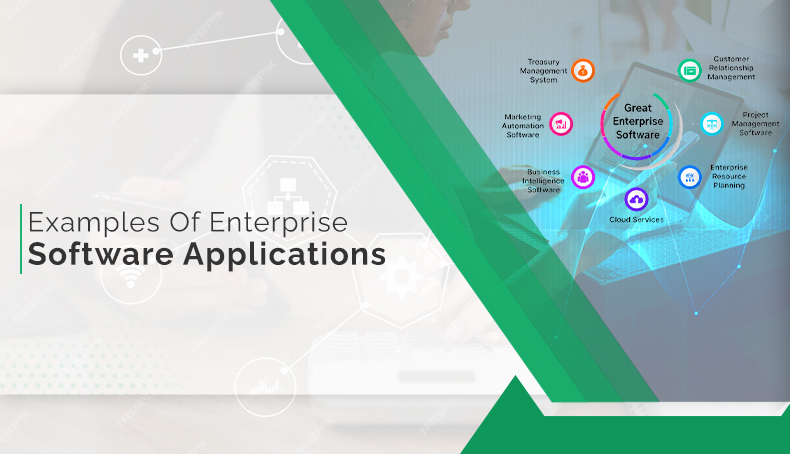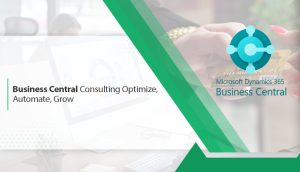Enterprise software applications are playing a crucial role in modern business. It allows organizations to optimize their operations and improve productivity. These apps are designed to support large-scale business functionalities. Furthermore, they are integrating various processes across departments e.g., finance, human resources, supply chain, and customer relationship management.
As several companies struggle to grow and evolve, leveraging the right software solutions is indispensable for maintaining a competitive edge in the marketplace. With an extensive array of available choices, enterprise software applications can be tailored to meet the unique needs of different industries. By understanding the various examples of enterprise software applications, businesses can make informed decisions that align with their strategic goals and drive long-term success.
What Is an Enterprise Application?
What are enterprise applications? Enterprise applications are considered to be large-scale software systems. They are helping businesses to streamline operations, and automate processes. Furthermore, these software solutions are tailor-made for small to large enterprises to accomplish their demands.
How they can work? these apps are integrated with existing systems and offer various functionalities like CRM, ERP, and much more. Therefore, they can centralize the data management with complete scalability. Enterprise applications software solutions allow for customization with user access control. Some noticeable examples of enterprise software applications include ERP, CRM, SCM, HRM systems, and Power BI tools.
What is an Enterprise Application Example?
An Enterprise Resource Planning (ERP) system is a pertinent example of enterprise web application. Furthermore, these ERP systems are all-inclusive software solutions that can easily integrate various business functions, e.g., finance, HR, inventory management, and procurement, into a fixed incorporated system.
They are very helpful in managing and automating critical business processes across different departments. Hence, ERP systems provide deep functionalities e.g., inventory tracking, financial management, supply chain optimization, and reporting analysis. Therefore, this example explains the benefits of business applications that can be helpful to enhance productivity.
Top Examples of Enterprise Software Applications
Microsoft Dynamics 365
Microsoft Dynamics 365 is an amazing example of enterprise apps. It is a cloud-based suite of applications that have a combination of ERP and CRM competencies. It helps your business manage its operations, financials, sales, customer service, and so on. It comes with modules for various business functions, like marketing, finance, supply chain, and HR. One of the best features is AI and machine learning capabilities to provide deep insights and automation, enhancing operational efficiency. Thus, other Microsoft products like Office 365 and Azure seamless integrations provide a comprehensive solution for your business operations. Microsoft Dynamics 365 CRM solution can be a perfect partner for your projects.
Service Now
It is a cloud-based platform that can manage IT services, operations, and much more. It helps businesses to automate workflows, rationalize service delivery, and mend operational efficiency. One of the wonderful things about ServiceNow is that its capabilities extend to HR, customer service, and security operations. Therefore, this feature makes it a versatile tool for various enterprise needs. Furthermore, its robust analytics and AI-powered insights can help you to identify and sort out issues proactively, augmenting overall efficiency.
HubSpot
HubSpot is a wide-ranging enterprise application example. The primary objective of this app is to help in business growth with the help of marketing, sales, customer service, and content management tools. Furthermore, it offers some other good features like email marketing, SEO optimization, social media management, and detailed analytics. This platform is the best for small to large businesses due to its high scalability. It comes with advanced capabilities like custom objects, predictive lead scoring, and conversation intelligence. Furthermore, Salesforce, Slack, and Google Workspace have excellent integration with HubSpot. Moreover, it supports Salesforce integration to further streamline business processes.
Learn more about the EAI Vs ERP in our blog.
NetSuite
It is another cloud-based business management application. NetSuite offers ERP, CRM, e-commerce, and professional services automation (PSA) abilities. It supports various business functions e.g., financial management, order management, inventory, and procurement. NetSuite’s real-time analytics and reporting features deliver insights to drive informed decision-making. Therefore, the platform is the perfect choice for all types of businesses owing to its scalability and flexibility. It is helping them to streamline operations and improve efficiency. The integration with other business applications makes it ideal to enhance usability across different business procedures.
JIRA
JIRA is considered to be the best project management tool. It is mainly intended for software development teams. It supports particularly agile methodologies excellent for the real-time reporting. It also offers customizable workflows, advanced reporting, and integration with other development tools to manage software projects. Thus, its flexibility also makes it suitable for non-software teams looking to accomplish tasks.
Adobe Experience Manager
It is a comprehensive content management solution for websites, mobile apps, and forms creation. AEM syndicates a digital asset management (DAM) system with a content management system (CMS). Furthermore, it can modernize the creation, management, and delivery of content across different platforms. Adobe’s Marketing Cloud integration with AEM delivers robust analytics and personalization competencies. It helps businesses deliver engaging digital experiences. Its scalability and flexibility make it suitable for both small and large businesses.
Zendesk
It is measured to be a customer service platform that manages business customer support across various platforms e.g., email, chat, phone, and social media. The main features of Zendesk are ticketing, automation, self-service portals, and analytics to improve customer service efficiency. It can simply integrate with other business apps enhancing its functionality, and making it a comprehensive solution for customer support. The flexibility feature makes it suitable for businesses of all sizes. Zendesk is one of the best Customer relationship management examples
Conclusion
Examples of enterprise software applications highlight the diverse tools available to organizations aiming to enhance efficiency. From Enterprise Resource Planning (ERP) systems that unify core business processes to Customer Relationship Management (CRM) solutions that foster better customer engagement, these applications serve as vital components of a modern business infrastructure. By carefully choosing and implementing the right software, your business can optimize its internal workflows and also improve collaboration across departments. Ultimately, it will drive growth and innovation. As businesses continue to navigate an increasingly complex landscape, leveraging the power of enterprise software will be essential for achieving strategic objectives.







